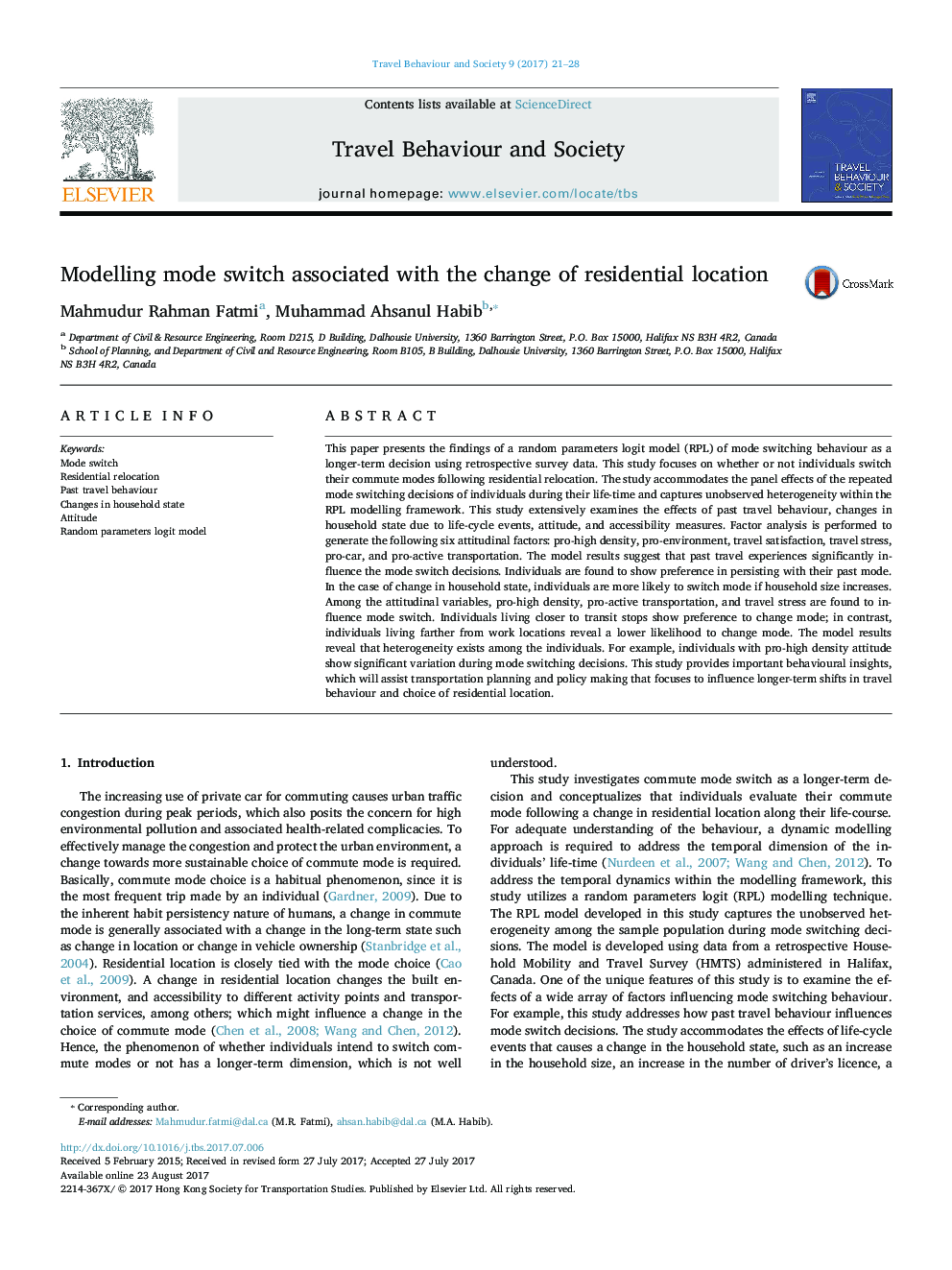| Article ID | Journal | Published Year | Pages | File Type |
|---|---|---|---|---|
| 4762094 | Travel Behaviour and Society | 2017 | 8 Pages |
Abstract
This paper presents the findings of a random parameters logit model (RPL) of mode switching behaviour as a longer-term decision using retrospective survey data. This study focuses on whether or not individuals switch their commute modes following residential relocation. The study accommodates the panel effects of the repeated mode switching decisions of individuals during their life-time and captures unobserved heterogeneity within the RPL modelling framework. This study extensively examines the effects of past travel behaviour, changes in household state due to life-cycle events, attitude, and accessibility measures. Factor analysis is performed to generate the following six attitudinal factors: pro-high density, pro-environment, travel satisfaction, travel stress, pro-car, and pro-active transportation. The model results suggest that past travel experiences significantly influence the mode switch decisions. Individuals are found to show preference in persisting with their past mode. In the case of change in household state, individuals are more likely to switch mode if household size increases. Among the attitudinal variables, pro-high density, pro-active transportation, and travel stress are found to influence mode switch. Individuals living closer to transit stops show preference to change mode; in contrast, individuals living farther from work locations reveal a lower likelihood to change mode. The model results reveal that heterogeneity exists among the individuals. For example, individuals with pro-high density attitude show significant variation during mode switching decisions. This study provides important behavioural insights, which will assist transportation planning and policy making that focuses to influence longer-term shifts in travel behaviour and choice of residential location.
Related Topics
Life Sciences
Environmental Science
Management, Monitoring, Policy and Law
Authors
Mahmudur Rahman Fatmi, Muhammad Ahsanul Habib,
